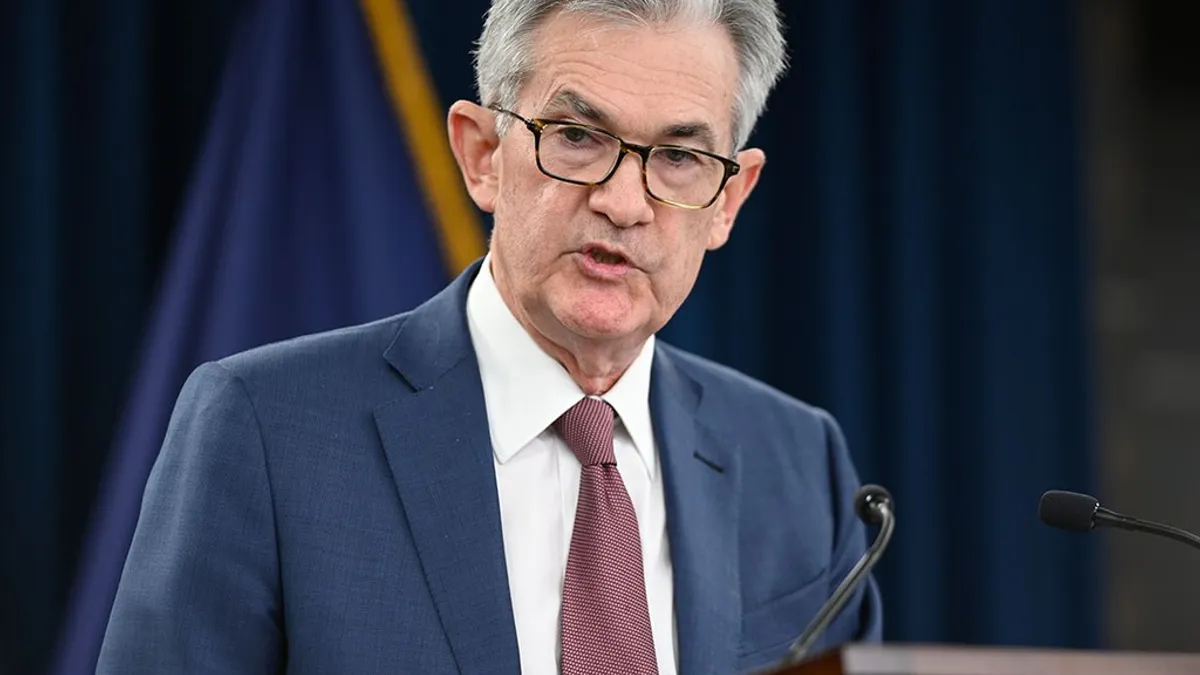High turnover among CFOs is putting a “premium on experience” when it comes to hiring finance chiefs to fill those gaps, said Jenna Fisher, managing director, global financial officers practice for Russell Reynolds Associates .
Turnover in the CFO seat reached near-record highs during the first three quarters of the year, with 224 new finance chiefs appointed from Q1 to Q3, according to the CFO Turnover Index recently published by Russell Reynolds Associates, a leadership advisory firm. For companies in the S&P 500, turnover in the seat reached a three-year high to date, the index found.
“I think one big change that I'm already seeing that I suspect we will see more of, is a real agnosticism toward the age of CFOs,” she said in an interview. “It wouldn't surprise me at all if the average age of CFOs goes up, not down in the next few years.”
The homegrown talent advantage
Businesses are increasingly seeking out experienced financial leadership to help them steer the ship through rocky economic and geopolitical seas, the latest CFO Turnover Index by the leadership advisory firm found.
More and more businesses are looking to home-grown talent to take their top financial seat, seeking out candidates that are familiar with their businesses’ processes, goals and culture. Fifty-five percent of global incoming CFOs were internal appointments for the first three quarters of the year, according to the index.
“We're having more and more of our clients who are coming to us saying, ‘Hey, we've got two or three really terrific potential CFOs here reporting into our CFO today, help us put together developmental programs and plans for them so that they potentially can be ready for that next role in 12 months, 18 months, whatever it might be,” Fisher said.
For those companies that did make external finance chief appointments, however, experience is top of mind; the leadership advisory firm is “seeing that dichotomy, where it's like, ‘okay, either we're going to go internal and promote them, or if it's outside, it has to be kind of a standard deviation above what we have,’” Fisher said of how companies are thinking of CFO hires.
A 20-year veteran of Russell Reynolds, Fisher serves as managing director and heads its global CFO practice, focusing on the placement of senior financial officers and board members, according to her LinkedIn profile.
The IPO ‘domino effect’
Finding a candidate with that experience may be easier said than done for many companies, however, as a number of converging factors have constricted the supply of potential CFO candidates. Turnover is increasing at the same time as the average tenure in the finance seat is decreasing, shortening to an average of 5.6 years, Russell Reynolds found.
This comes as CFOs at public companies are being pulled away for a number of reasons: a higher number are being promoted to CEO or chief operating officer roles, Fisher said. Others are being enticed away by private equity firms “coming in and saying, ‘if you’d like to work as an operating partner, we'd love to have your expertise and years of experience to benefit our firm,” she said. “So that continues to be a pull.”
Lastly, the continued accounting shortage is yet another “drain” on CFO supply — the historic “feeding grounds” of the Big Four accounting firms led to a large number of finance chiefs, but “now, while it's certainly not a negative to have your CPA, that kind of training and background is not the one that's most in vogue,” she said.
As the Big Four feeding grounds have dwindled, moreover “there hasn't been another kind of feeding pot for the role of CFO,” she said.
However, one of the biggest factors contributing to current CFO supply inequity is the initial public offering space, Fisher said. The surge of IPOs in 2021 “certainly placed a serious constraint on the CFO market, because every one of those companies needs a CFO, and often that's sort of an inflection point where they want an experienced CFO, where they're upgrading their CFO, or they want a CFO that has capital markets experience,” she said.
Following that, “there’s a little bit of a domino effect,” because successful pre-IPO companies can entice IPO-experienced finance chiefs away from their current businesses — leading to yet another finance chief gap to fill, she said.
This “domino effect” may also be impacting the higher rates of turnover in certain key industries, most notably that of technology — where turnover reached 15.2%, a five-year high, according to the index.
Technology companies or those looking to conduct an IPO in the near future are also seeking experienced finance chiefs to serve as potential guides for new CEOs, Fisher said. A first-time CEO is likely looking for “an experienced CFO to be my partner and consigliere, because it's sort of my first step at bat, and it might be too risky to have two people who have never done this before,” she said.




















